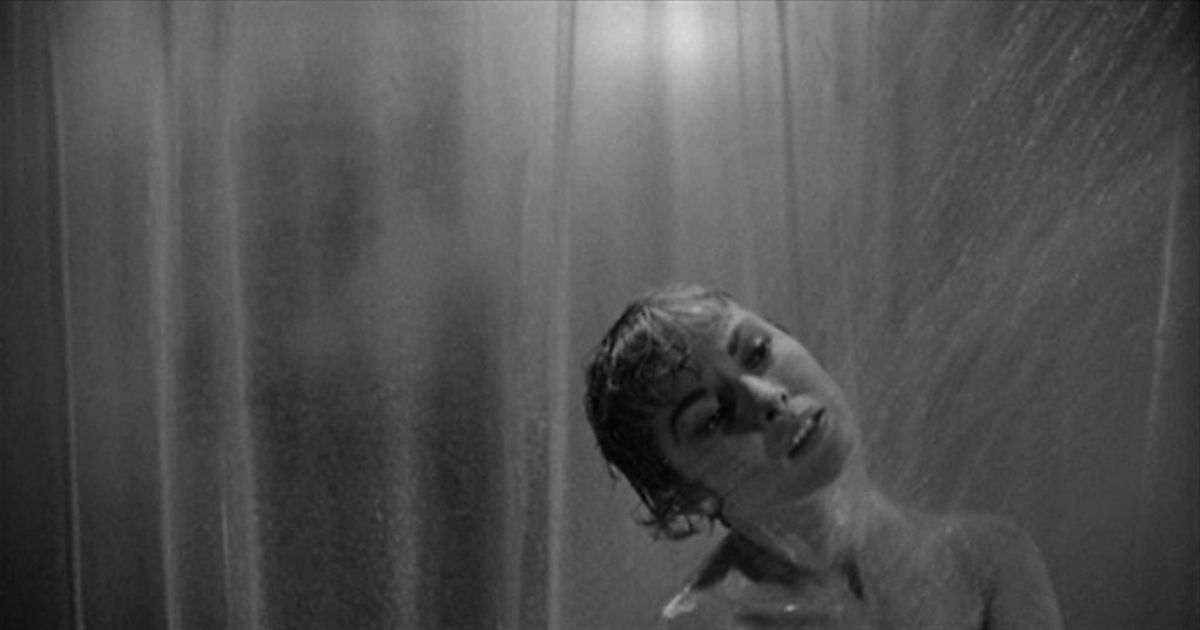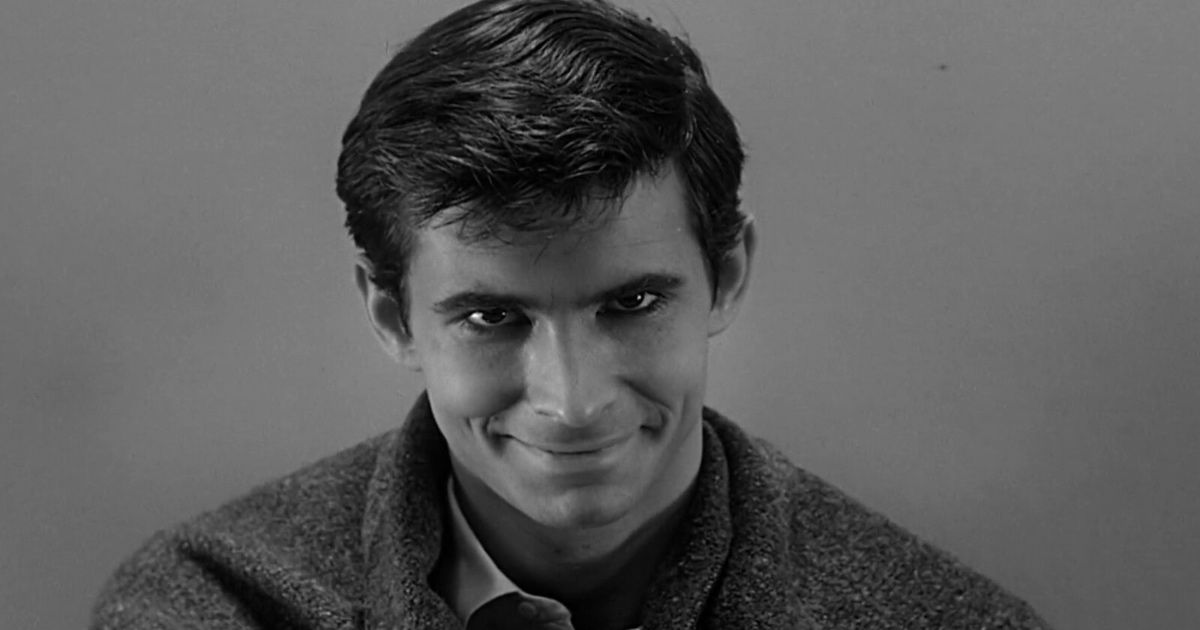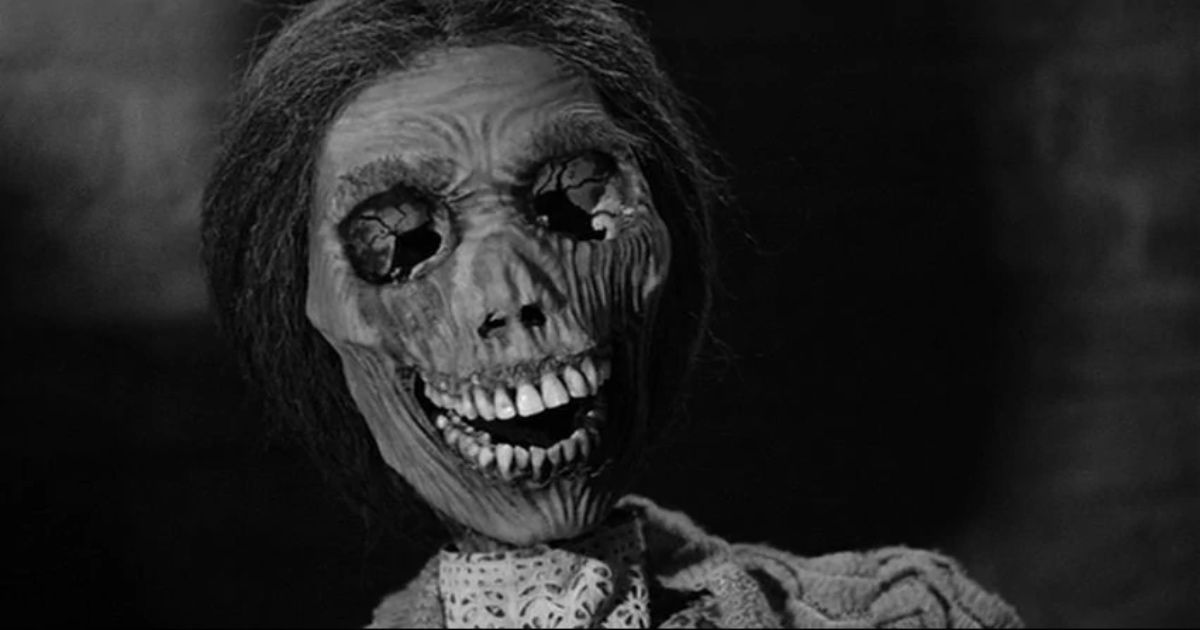If you're into horror films, chances are you saw Psycho at some point in your life. Alfred Hitchcock's 1960 film is part of the pop culture lexicon, and even if you haven't seen it, you're probably able to recognize its presence by its music and its most iconic imagery (and you should probably stop what you're doing and watch it now).
In the film community, we all have different things to say about Psycho and its agency in the horror universe. One of the first slashers, the first horror film with a transgender character, the first time subverting what would later be known as 'the final girl' trope. All "firsts." But this doesn't automatically mean it's a near-perfect film. In fact, maybe it isn't. The ending is very divisive, and let's face it, there was no need for it. We didn't necessarily need an explanation for what went on inside Norman Bates' mind.
However, most of us share something. Something more objective and related to the factual aspects of the film. Psycho is a staple in horror because of how it was shot and released. You can notice how Hitchcock insisted on making a different film from what he had made earlier and what was being regarded in the industry as a horror film. In his excessive attempt, he helped introduce the modern era of horror and accomplished one of the genre's greatest films. At least for some. For others, it's one of the greatest films ever made.
Spoiler warning! Go see Psycho and come back. This is an order from Hitchcock himself.
Bending Genre Rules Until Rewriting Them
The rules of the horror genre were very different in the time of Psycho. The Hays Code was finally beginning to break down, but American films still clung to traditional notions of morality and what could or couldn't be shown. Psycho slashed through that moral curtain, something which was happening in other countries, with Mario Bava in Italy or with Peeping Tom in the UK. That film was also released in 1960 and is arguably just as important, though much more underrated. We won't discuss which one's better, Peeping Tom or Psycho. They're radically different films, and this isn't a history lesson.
Hitchcock messed with our perception in a way that challenged people's assumptions about genre films at that time. Traditional narratives had a structure that the director decided to break for the sake of suspense and further shock. The buildup to climax had a surgical aspect to it, and every piece of the puzzle is carefully placed. He's making you look and fall in love with a certain character. In fact, the ethical aspect of that woman's actions becomes secondary to what we start to feel for her. She's a thief, but we want her to win.
But then something happens, and we're left with nothing. This direct jab is so impactful, we start to think the film may be over. If Hitchcock has another surprise coming, it won't be as important as the lead being killed first. We know this is a horror movie, but in horror movies this doesn't happen. This manipulation is a masterful move by a director who intends to distract us from solving the conflict early. Now we start analyzing Norman, believing him to be a victim of an irrational killer he's simply protecting.
The storytelling rules are broken from an early start. Heroes and villains weren't the same in Hitchcock's universe, but in Psycho he materializes our greatest fear: it's all make-believe until improbable things start happening. In real life, people may die early on, no matter how guilty or innocent they may be.
An Experience We Will Probably Never Have Again
Going to the movies was different back in the day. People actually dressed up to attend the theater, and would sometimes stay there all day. It wasn't just going to the movies. It was a social event like none other. Hitchcock observed this importance and gave credit to the whole experience. How would his film change the rules in regard to the filmgoing experience of audiences worldwide? This is when he came up with an idea that would let him control how audiences saw his film, something unimaginable by today's standards. He would control access.
Outside the theater, people would find a large poster with Hitchcock pointing at his clock and frowning his face. The signs read, "It is required that you see Psycho from the beginning," and large copy after that convinced you to see the next show if you had arrived late. Hitch only wanted you to enjoy Psycho more. This wasn't more profitable. Theaters didn't have to enforce this, and perhaps some didn't. But that sign simply made things more interesting. It drove you to ask yourself, "What the hell am I missing if I don't get there earlier?".
Doing this today is unthinkable. Directors have no more power than studios. Hitch went against all intuition and decisions made by producers who were still mad about the toilet shot. They would provide distribution, but the director controlled everything. Psycho is great, yes. But it's also an important film that provided a different landscape for directors and how they affected wide releases. Hitchcock provided proof that directors something go beyond sitting behind the camera in their belief about an idea, something which can be seen today in Christoper Nolan's sound design, James Cameron's technical specifications, and so many other directorial decisions.
The Art of the Scare
So, a different narrative with a different theatrical experience. This wasn't the silly shenanigans of William Castle. The story mattered, and there was a reason for changing the way you attended your favorite movie house. This was a director who understood the kind of film he wanted to make, but also the kind of audience he was targeting. Psycho is the definition of a scary film with an effect enhanced by the soundscape and visuals that only a movie theater may provide. But again, be there from the start.
Hitchcock's stance allowed you to care for someone who perhaps didn't deserve it. This was a woman who participated in a questionable relationship and who stole some money to start over. In minutes, we forget about that because she becomes a hero of her own circumstances. With this dramatic detour, he makes us forget we're in a horror film (it helped that Psycho was the first time Hitchcock incorporated explicit, bloody violence in his films). Nothing was going to happen to her.
The scare is the ultimate tool utilized by Hitchcock to shock. He hits us when we least expect it with one of the most iconic scenes in film history. In the shower scene, he becomes a technical mastermind and manipulates our senses to evidence the destruction of the world we had constructed up to that point. He slashes and slashes, and in a matter of seconds, destroys our optimistic view of Marion Crane's future. No sudden jump scares or cheap shots.
In Hitchcock's film, the scare is much more complex, effective, and long-lasting. Just like Psycho in the horror film industry.




